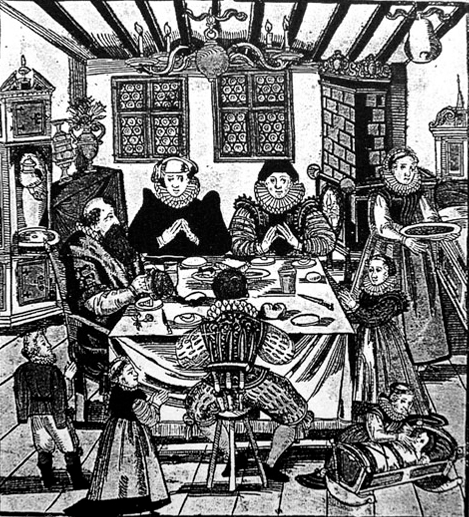The godly household – materiality and organization of the early modern household in northern Europe
About new research directed initiatives on the occasion of the anniversary of the Reformation
Oplysninger om arrangementet
Tidspunkt
Sted
AU Moesgård, Foredragssalen (4206-139)
Arrangør

Organised by Mette Svart Kristiansen and Nina Koefoed
20th April 2017 13.15-17, AU Moesgaard Foredragssalen (4206-139)
Reformation theology changed the religious understanding of household and family life. Marriage became central for the pious life and the household a central organizational and societal unit for both a life lived according to the will of God and for social order.
But what kind of influence did this understanding of marriage and household have on the organization, materiality and function of the household? Can the influence for a changed religious perception of the household be traced in material and written sources? Does the specific protestant confession and confessional culture make any difference? How can we investigate the possible connection between thought and thing, between thought and social practice?
”Eine schöne Tischzucht”. Woodcut by Abraham Bach, c. 1620.Source: Furnologia.de
LUMEN (LutheranMentality) - Interdisciplinary Centre for Lutheran theology and confessional society in collaboration with the Research Programme Materials, Culture and Heritage at the Department of Archaeology, University of Aarhus.
Programme
13.15-13.30. Welcome
associate professor Nina Javette Kofoed, Dept. of History and associate professor Mette Svart Kristiansen, Dept of Archaeology
13.30-14.00. Building the godly household; networks of objects and spaces in early modern merchant households
Dr Chris King, University of Nottingham
The early modern period witnessed profound changes in the use of domestic space and the display and transmission of household objects in mercantile households. Using Norwich, England’s ‘second city’ in the 16th and 17th centuries, as a case study, I will explore domestic space as an important material mechanism through which social networks, civic power and cultural identity within urban elites were transformed during a period of profound political and cultural conflict brought about by religious Reformation.
14.00-14.15. Questions and discussion
14.15-14.45. Coffee and tea
14.45-15.15. The Godly household in public: people, places and things negotiating the early modern world
Dr Kate Giles, University of York
The 16th century witnessed profound transformations in the cultural, social, political and ideological worlds of late medieval communities. Ways of living, believing and socialising were fundamentally challenged and transformed, especially in the public sphere, where churches and public buildings were open to the scrutiny of religious commissioners and zealous reformers. Yet the form, decoration and use of buildings preserved important traces of the medieval past, in architectural ‘palimpsests’ that allowed individuals, households and communities to negotiate the transitions of the 16th century, in ways that we are only beginning to appreciate archaeologically. This paper will focus on the Holy Cross Guildhall of Stratford on Avon, a public building associated with one of England’s most iconic early modern households, namely that of William Shakespeare.
15.15-15.30. Questions and discussion
15.30-16.00. Social Hierarchies and Interaction: A Spatial Performance
Senior lecturer Karin Hassan Jansson, Uppsala University
The early modern household is often conceptualized as a social unit and a religious model. But it was also a practice, constituted by peoples’ performances and interaction. This practice was embedded in the economic, social and religious context of the early modern society. In this paper, I will give examples of how people were "doing household" in a Swedish court case from 1734.
16.00-16.15. Questions and discussion
16.15-16.45. Final discussion
16.45. Wine and Snacks
